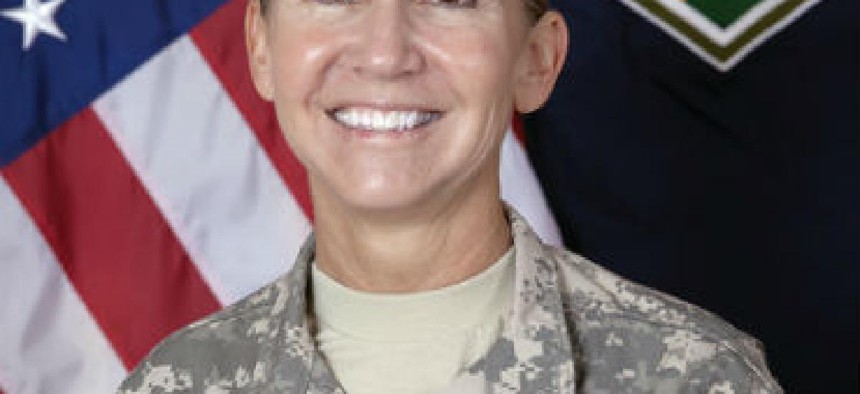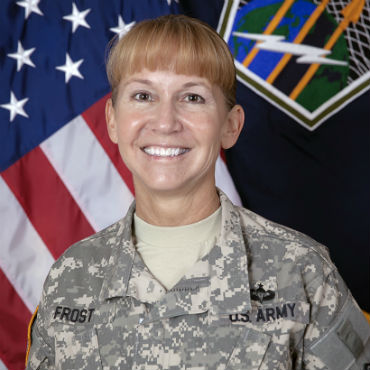Army readies new cyber directorate

Brig. Gen. Patricia Frost, former deputy director of Army Cyber Command, will lead the new directorate. The Army hopes to ramp up the directorate quickly, reaching full operational capability this summer.

Brig. Gen. Patricia Frost (above), former deputy director of Army Cyber Command, will lead a new cyber directorate.
The Army is setting up a new directorate in its G-3/5/7 office to oversee cybersecurity and electronic warfare, a move that officials say signals a renewed seriousness in the service toward those disciplines. Army leadership expects the directorate to have initial operating capability next month and full operational capability later in the summer.
"The Army senior leaders have recognized this is important and we need to put a more focused attention on this field," Col. Jeffrey Church, the Army's senior electronic warfare officer, told FCW.
Brig. Gen. Patricia Frost, the former deputy commanding general for operations at Army Cyber Command, will lead the new directorate. That experience could come in handy as the new organization claims its stake in a bureaucracy with multiple organizations covering cybersecurity.
"Bringing in a new directorate under a new two-star position, that brings two-star weight to the table to all of those discussions about doctrine, policy, organization, budget," Church said, referring to the fact that Frost is eligible for promotion to major general.
"Now you have a two-star general officer who is going to focus specifically on cyberspace, electronic warfare," and perhaps other fields, he added. Church spoke with FCW May 26 at a conference hosted by C4ISR & Networks.
Col. Carmine Cicalese, former chief of cyberspace and information operations at Army headquarters, agreed with Church's assessment. "Having a general lead the new directorate will be a boon for the Army's cyber, electronic warfare, and information operations enterprises," Cicalese told FCW.
The new directorate is the latest attempt by the Army to exploit the oft-discussed overlap of cyber and electronic warfare operations. An example of that overlap lies in software-defined radios, which operate on the spectrum and can be hacked.
For Army officials, Russia's war in Ukraine has crystallized the convergence of cyberspace and electronic warfare. There, Russian forces have reportedly used advanced systems to jam Ukrainian battlefield communications. Meanwhile, some media reports have attributed a December cyberattack on parts of the Ukrainian power grid to Russian hackers.
Russia's use of the spectrum in Ukraine has bolstered Church's efforts to gain more support for electronic warfare in the Army, he has said previously.
By co-locating officers dealing with electronic warfare, cyberspace and likely other aspects of information operations in the same organization, the new directorate will break down barriers in those fields "so that as we conduct operations, we all understand how we contribute to achieving the effect that the commander wants," Church told FCW.
"Some days that might be a cyber effect. Some days that might be an electronic warfare effect. Some days that might be a tank round effect," he added.
In addition to the new directorate, the Army is also conducting a series of experiments -- things like simulating network attacks -- to determine how to better fuse electronic warfare, cyber operations, and signals intelligence.
NEXT STORY: Proposed new HHS CISO role prioritizes security


